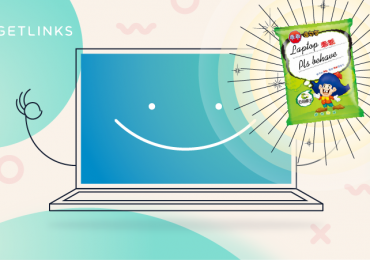How to Present the Best Sides of Yourself During an Interview Even through a Virtual Screen

Employees play a significant role in the success of a company. Employers are well aware of this, so they look for the best talent to fill open positions. If you were fortunate enough to land a job interview, you must gain your interviewer’s trust in order to have the best chance of landing the job. Personal characteristics that define you are effective selling tools. In the COVID-19 pandemic, there might be a chance you have been asked for an interview through a virtual screen. According to a survey, around 86% of organisations conducted virtual interviews of candidates during the pandemic’s peak. Virtual interviews include many of the same elements as in-person interviews. Instead of shaking hands and figuring out which chair in the room to sit in, you will click a link and join a video call, where your interviewer will hopefully be waiting. To gain the confidence of your interviewers through the virtual screen, you must take great care of many other things as well.
Professionalism is Critical
Every workplace has professional standards that employees are expected to adhere to. The interviewer examines your actions to determine how you conduct and whether you are a good fit for the position. This includes how you dressed for the interview and whether you arrived on time or were prepared for a virtual interview.
As video interviews limit communication through body language, it is critical to use body language clearly and professionally. Sit up straight and position your camera so that your face is in the centre of the screen. Attending an interview on a mobile device is considered highly unprofessional and should be strictly avoided. In most interviews, you shake hands with your hiring manager at the start and end of the conversation. It is a crucial body language cue that assists in forming the relationship. In fort of the virtual screen, look for other ways to greet and convey enthusiasm, such as smiling and confidently waving while maintaining eye contact.
Good Communication
Good communication is an essential component of any interview, and its importance cannot be oversimplified even in a virtual environment. Employers seek a workforce who are good communicators to ensure a smooth operation. While the interviewer speaks, demonstrate active listening and articulate your responses to convey your messages successfully. Interrupt the interviewer as little as possible, speak clearly and concisely, and answer questions appropriately.
During the virtual interview, you must have a stable and uninterrupted internet connection. Remote interviews are different from in-person interviews in that your connection with your potential new manager is formed through technology rather than by sharing space and integrating with the same room. There should be no background distractions, and notifications should be turned off. All of the necessary hardware (webcam, headphones, microphone, laptop, etc.) should be operational and adequately utilised so that technology does not interfere with your abilities.
The monotony of virtual calls is greater than that of in-person calls. Maintaining a lively conversation will be your main challenge during the interview.
Present Your Flexibility
In the workplace, things do not always go as planned. In order to stay current, companies must often adapt to emerging trends. Your potential employer is looking for employees who are adaptable to changing circumstances and eager to learn new skills and abilities, especially in the COVID-19 pandemic.
If you are asked about relocation during the interview, keep an open mind. If you are concerned about the cost of relocation or travel, your company may be willing to cover these expenses. A willingness to be flexible and eager to adapt is one of the good qualities to mention in an interview.
Be a Team Player
A productive work environment depends on the ability to get along with your colleagues. Employers care about how employees handle conflicts and team tasks, even though personalities differ in the workplace and clashes are unavoidable. The interviewer may ask you to exemplify how you have previously handled conflict or successfully collaborated on a project with others to assess your ability to work with others.
It is possible to collaborate productively with someone you dislike. As a result, your response should demonstrate how you completed the task without allowing your emotions to interfere. One of the most powerful interview techniques you can use is to give a concrete example.
Positive Thinking
Maintain confidence and a positive attitude throughout the interview. Your interviewer may notice if you have doubts about your abilities or only see the worst-case scenario. Employers seek out employees who are upbeat and can think quickly on their feet. It is difficult to see the positive side of situations when you are focused on the negatives. When asked how you deal with issues, say that you focus on finding practical solutions after recognising them. Remember that your body language can be interpreted even from a virtual screen.
Be Truthful and Transparent
Your interviewer will assess your overall demeanour and work ethics, including whether you show sincere interest in and enthusiasm for the job, as well as whether you are honest. Any sign of disinterest, boredom, or lying could cost you your job. The interviewer may ask probing questions to determine your honesty.
Also, do not act by only saying what you think the interviewer wants to hear during the interview. Allow your personality to speak for itself by remaining welcoming, courteous, and professional.
Building Rapport
In any business arrangement, building rapport is critical because it allows you to distinguish yourself from other applicants by forging a personal connection with the interviewer. When you have a face-to-face interview, your enthusiasm, body posture, handshake, and early small talk all help you establish a rapport with your potential employer.
It is still necessary to find ways to establish rapport when communicating virtually. You do this by being prepared to discuss a common interest, inquiring about your interviewer’s virtual interview experience, or finding another unbiased topic to gain knowledge more about your interviewer.
Follow up
Plan to send a timely follow-up email after your interview. Within 24 hours of an interview, send a follow-up email thanking the interviewer for their time and letting them know you are accessible if they have any further questions.

